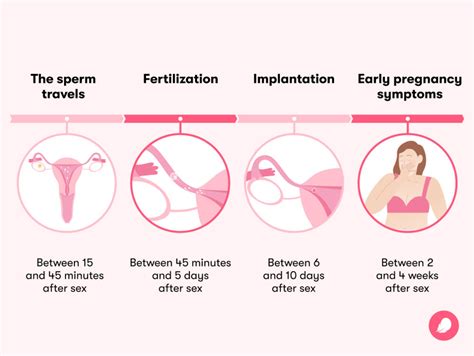How Long Does It Take To Show Signs of Pregnancy?
Knowing when to expect pregnancy symptoms can be a confusing time. This comprehensive guide breaks down the timeline of early pregnancy signs, helping you understand what to look for and when. Remember, every woman is different, and experiencing symptoms—or not—doesn't necessarily indicate pregnancy or its absence. Always consult a healthcare professional for confirmation.
Early Pregnancy Signs (Weeks 1-4): The Waiting Game
The first few weeks after conception can be tricky. Many women don't experience any noticeable changes at all. However, some may start noticing subtle shifts:
Week 1-2: Implantation and Beyond
- Implantation bleeding: Light spotting or bleeding can occur as the fertilized egg implants in the uterine wall. This is often mistaken for a light period.
- Missed period: While a missed period is a classic sign, it's not always reliable in the early stages. Other factors can cause missed periods.
- Basal body temperature (BBT) shift: If you track your BBT, a sustained elevation might be an indicator.
Week 3-4: Hormonal Shifts and Subtle Changes
- Fatigue: Feeling unusually tired is common due to hormonal changes.
- Breast tenderness: Your breasts might feel swollen, tender, or sensitive.
- Mood swings: Hormonal fluctuations can lead to emotional ups and downs.
- Nausea and vomiting (Morning sickness): While often associated with later stages, some women experience mild nausea early on.
Important Note: Many of these early signs can be attributed to other factors, such as stress, hormonal imbalances, or illness.
Pregnancy Signs (Weeks 5-8): More Noticeable Changes
As your pregnancy progresses, the symptoms often become more pronounced:
Week 5-6: Growing Stronger Signals
- Frequent urination: Your body's increased blood volume leads to more frequent bathroom trips.
- Food aversions: Certain smells or foods might become repulsive.
- Food cravings: On the flip side, you might suddenly crave specific foods.
- Increased sense of smell: Your sense of smell may become heightened, making certain odors overwhelming.
Week 7-8: Potentially More Intense Symptoms
- Morning sickness intensifies: For many women, nausea and vomiting become more frequent and severe.
- Heartburn: Hormonal changes can lead to heartburn or indigestion.
- Constipation: Hormonal shifts and changes in diet may contribute to constipation.
- Headaches: Fluctuations in hormone levels may trigger headaches.
Crucial Consideration: While these symptoms are common, their absence doesn't rule out pregnancy.
When to Take a Pregnancy Test
The most reliable way to confirm pregnancy is through a home pregnancy test or a blood test from your doctor. Home tests typically detect pregnancy around the time you miss your period (usually around 2 weeks after conception). A blood test can detect pregnancy even earlier.
When to See a Doctor
If you suspect you're pregnant, scheduling an appointment with your doctor is essential. They can confirm the pregnancy, provide guidance on prenatal care, and address any concerns you may have.
Conclusion: Patience and Professional Guidance
The timeframe for showing pregnancy symptoms varies widely. While some women experience noticeable changes early on, others might not experience anything until later. Relying solely on symptoms isn't reliable for confirming pregnancy. Remember to take a pregnancy test and consult your doctor for definitive answers and proper prenatal care.
